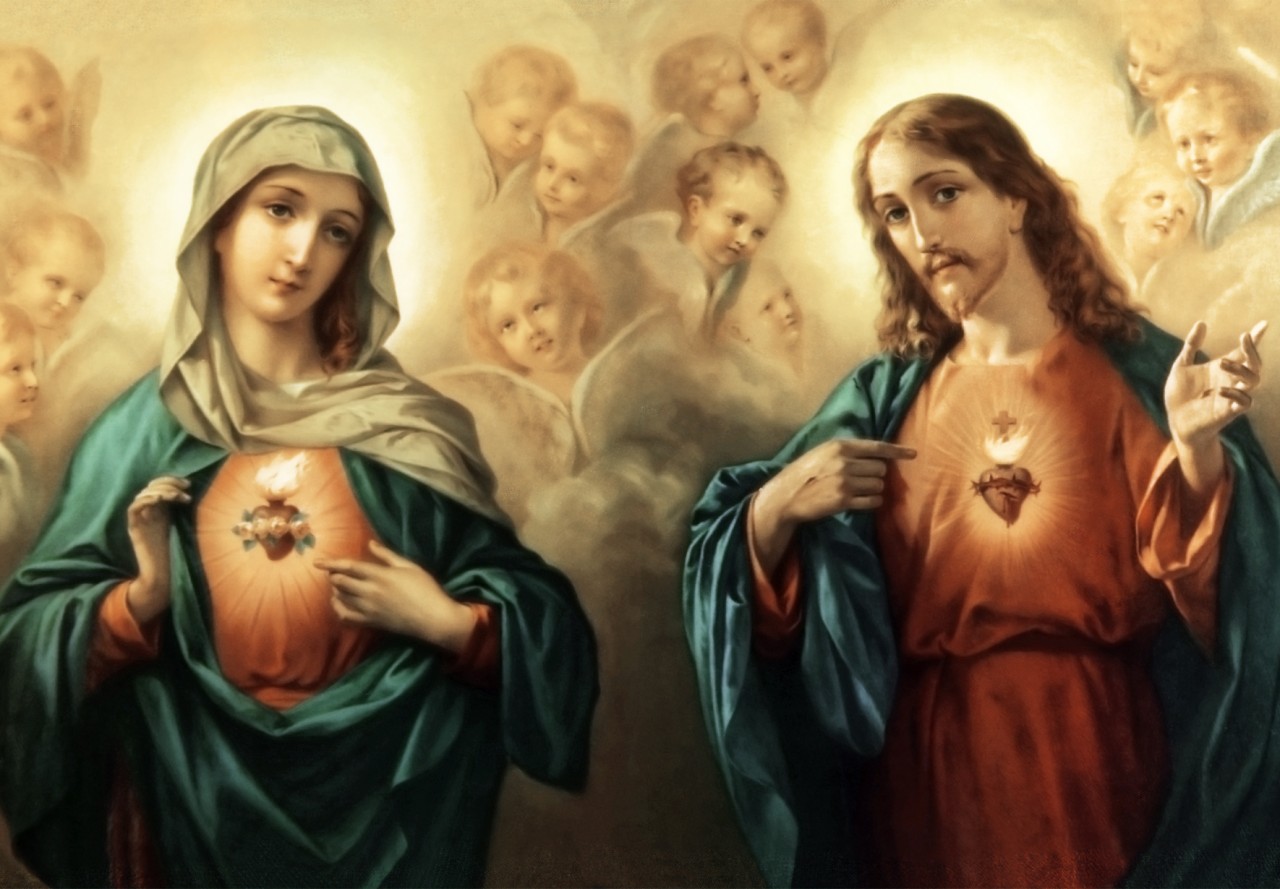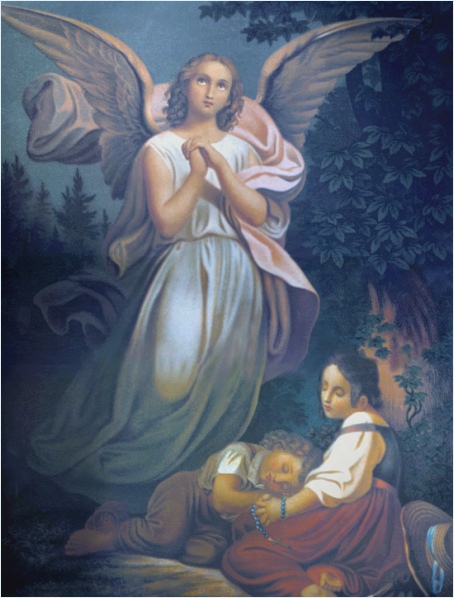ST. ANTHONY OF PADUA - OUR PATRON SAINT
Feast Day is June 13
The very first writings of the life of St. Anthony are found in a book known as the Assidua (because Assidua happens to be the Latin word that begins the little book). An anonymous Franciscan friar, at the request of his community, wrote this little biography for the occasion of St. Anthony’s canonization, which took place only one year after his death in 1231. Franciscan scholars consider the Assidua a reliable source for the basic facts of Anthony’s life.
If one reads through this book very carefully, you will discover between the lines just what made Anthony a truly great saint. The one thing that jumps out to most people from the pages of this book was Anthony’s lifelong desire to be a contemplative person seeking the face of God before all else. What follows are selected details and quotes from the Assidua.
Anthony’s Early Years
Anthony’s baptismal name was Ferdinand. He was born in Lisbon, Portugal, and his parents lived close to the Cathedral Church. His parents “entrusted him to this church…so that he might learn the sacred scriptures there.” This is already a strong hint of Ferdinand’s early desire to find God in the pages of the Bible.
At age 15, Ferdinand withdrew from the world and the “sensual pleasures” of adolescence and entered the Augustinian monastery nearby, another clear sign of his holy longing to find God.
He lived in this monastery for two years, but felt distracted in his search for God because of the frequent visits of his friends from around Lisbon. As a result, Ferdinand asked his superiors if he could move to the Augustinian monastery in the city of Coimbra, 100 miles away.
Anthony’s Search Intensifies
At the monastery in Coimbra, young Ferdinand often studied the Scripture in search of “the deep sense of the word of God.” His journey toward God, however, would soon leap to a new intensity. It happened that the relics of five holy Franciscan martyrs, beheaded in Morocco for preaching Christianity to the Muslims, were brought to Portugal amidst great publicity and fervor. On learning first hand about the great faith and heroism of these Franciscan martyrs, Ferdinand desired to follow in their footsteps.
It so happened that not far from the monastery where Ferdinand was staying, there lived a group of Franciscan friars at a church named St. Anthony (named after 4th-century St. Anthony of the Desert). These friars often came begging at the monastery door, where Ferdinand was staying. He spoke earnestly to the Franciscans about his desire to become a martyr for Christ. With great joy, the friars said they would come back in two days and invest him in the Franciscan habit. And so it happened Ferdinand, the Augustinian, became Anthony the Franciscan, and was soon on his way to Morocco.
A Change in Plans
The newly renamed Anthony became deathly sick in Morocco and had to sail back to Portugal to regain his health. On the journey home, a strong wind swept them off course and they landed in Sicily. The friars there told Anthony about the general chapter of the Franciscan Order taking place in Assisi and they persuaded him to attend, despite his illness.
Because Anthony was a newcomer to the Order, the chapter ended without his receiving any assignment. So Anthony introduced himself to the provincial of Romagna, a region in northern Italy, and asked if he could go with him to learn the fundamentals of the Franciscan life. Out of humility, Anthony did not speak about his own high level of education and deep mysticism.
The provincial invited Anthony to go with him to Romagna and offered him a room in the hermitage of Monte Paolo, not far from the town of Forli. Here, Anthony’s desire for contemplative prayer again sprang to life within. Learning about a secluded cell that a certain friar had built nearby, Anthony asked the friar if he could use this cell. Anthony went there daily to nurture a closer union with God, taking with him only a little bread and water.
Anthony, The Famous Preacher
One day, Anthony went with the other friars to an ordination ceremony in the town of Forli. A good number of Franciscan and Dominican friars were there for the ceremony. The local superior asked several Dominicans to preach for the occasion but all refused. Finally, “the superior turned to friar Anthony and ordered him to proclaim to those assembled whatever the Holy Spirit might suggest to him.”
This event catapulted Anthony into an incredible career as a preacher and evangelist. The Assidua draws a clear connection between his contemplative gifts and his power as a preacher. Of Anthony it says: “The faithful dweller of the hermitage was sent out into the world and his lips, closed for so long, were opened to proclaim the glory of God.”
For several years, Anthony preached throughout northern Italy and southern France. At one point, the minister general sent him to the papal court in Rome to preach to the Pope and other church leaders. To quote the Assidua again: “Anthony’s sermons were heard with the warmest devotion by the Supreme Pontiff.” Anthony drew out of Scripture such original and profound meaning, that he was called by the Pope himself… “The Ark of the Testament.”
During the last two years of his life, St. Anthony preached mainly in the city of Padua, where he became a favorite. The crowds who came to hear him were so large often reaching 30,000 that Anthony often had to go outside the city to the open fields.
The Saint’s Last Days
Sadly, Anthony died at age 36. Seeing that his days on this earth were coming to a close, he withdrew from Padua to the nearby town of Camposampiero. Once again, his familiar desire for contemplative union with God returned. With the help of a certain nobleman named Tiso, a cell something like a tree hut was built for Anthony in the branches of a walnut tree in a thick forest. Anthony spent the last days of his life in that solitary place so he could “give himself exclusively to God.”
One day, however, when Anthony came down from the tree to join the friars for lunch, he became seriously ill. He asked his confreres to take him by cart to Padua. Just outside Padua, the group stopped at the Franciscan friary at Arcella next to a Poor Clare monastery.
As death drew near, Anthony received the Sacrament of Penance for the last time and then sang a hymn “to the glorious Virgin.” When he finished his song, the dying friar “suddenly raised his eyes toward heaven and with a stunned look, stared in front of himself for a long time. When the friar who was supporting him asked what he saw, Anthony answered, “I see my Lord!” Anthony’s search for the face of God was now successfully completed.
St Anthony, help us all to get in touch with the gift of contemplation within each of us. Help us find what you were always seeking and what you finally found: The greatest of all treasures, union with our living God! Amen.
Download free Christian Tamil Songs...
Download free Catholic Tamil Books..























.JPG)
%2B-%2BBaptism%2B14th%2BAug%2B2011.JPG)



.jpg)

.JPG)
